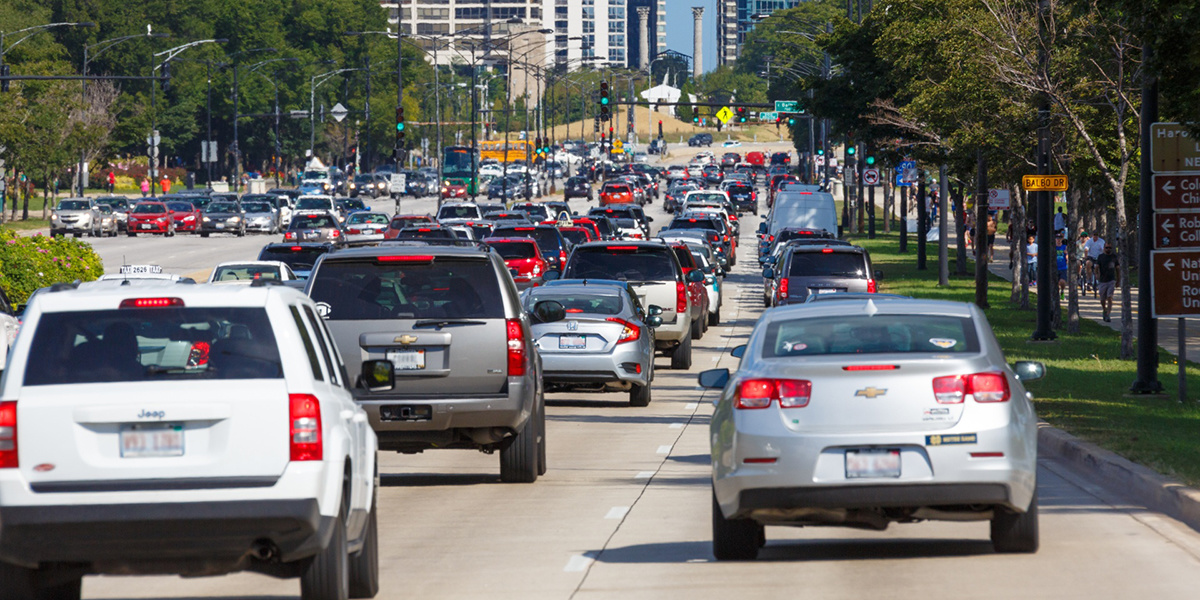

When the U.S. Environmental Protection Agency increased safety and environmental standards for cars in the 1970s, automakers responded. Although they had to adhere to the new rules, they didn’t base their entire response on safety or pollution concerns. Instead, they looked for loopholes.
Under the U.S. Clean Air Act, vehicle manufacturers were required to more than double fuel efficiency for cars over the following decade. Canada and other countries followed suit. But trucks, vans and SUVs weren’t subject to the same regulations, so automakers started marketing them as family vehicles.
In many countries, greenhouse gas emissions have been falling in some sectors, thanks largely to a shift from coal-fired power. But they’ve been rising in the transportation sector. That’s bad news. Transportation accounts for about 14 percent of global emissions and is now the largest source of CO2 emissions in the U.S., mostly from cars and trucks.
In Canada, the largest share of emissions is from the oil and gas industry, at 26 percent, but transportation, at 24 percent, is a close second. While emissions from electricity generation and heavy industry have been declining in Canada since 1990, emissions from oil and gas and transportation have been rising, by 76 percent for oil and gas between 1990 and 2015, and 42 percent for transportation. According to the Government of Canada, car emissions went down by 23 percent over that period, but “emissions from light trucks (including trucks, vans and sport utility vehicles) doubled.”
Fuel efficiency, hybrid and electric vehicles and cleaner transportation options such as car-share programs, transit and cycling infrastructure are necessary to reduce pollution and climate change. But the growing worldwide market for trucks, SUVs and “crossover vehicles,” which combine car and SUV design, are negating advances in those areas.
As the New York Times points out, “For the first time, S.U.V.s and their lighter, more carlike cousins known as ‘crossovers’ made up more than one in three cars sold globally last year, almost tripling their share from just a decade ago, according to new figures from the auto research firm JATO Dynamics.” In the U.S., low gas prices spurred a boom in “light-duty” vehicles like SUVs, which accounted for 63 percent of 2017 vehicle sales.
In Canada, according to the government, “Since 1990, the increase in the number of light trucks has been more than three times greater than the increase in the number of the overall fleet of passenger on-road vehicles.”
Pickup truck sales are also booming, with the Ford F-series poised to beat out the Toyota Corolla as the world’s top-selling vehicle.
The UN Global Fuel Economy Initiative concludes that global fuel efficiency for new cars has to improve by three percent a year just to stabilize emissions. As the New York Times reports, “Between 2005 and 2008, the average fuel economy of new cars worldwide improved by about 1.8 percent a year,” but the “pace has slowed to 1.1 percent in 2015.” As countries like China and India accelerate their embrace of car culture, the problem will only get worse.
Even though trucks and other large vehicles are useful for many types of work, they’re often unnecessary as personal vehicles. Too many SUVs on city streets often transport only a driver, and there’s little evidence that many have ever been off-road. SUVs don’t necessarily contribute to overall increased safety either, because they’re more prone to roll over, and even though people in an SUV may avoid death or serious injury in a collision, people in smaller cars that collide with the larger vehicles are more likely to be killed or seriously injured than if they collided with a smaller car.
Bigger vehicles mean greater profits, and they help keep the oil and gas industry thriving. That both industries prioritize profits over the need to address pollution and climate change is unconscionable.
It’s up to industry and governments to take the major steps to combat climate change and reduce pollution, but individuals also have a responsibility. Personal transportation choices can make a major difference. Driving SUVs and trucks when less-polluting options would serve as well or better is irresponsible. We owe it to ourselves and to the rest of the world to do better.

 233k
233k  41k
41k  Subscribe
Subscribe 